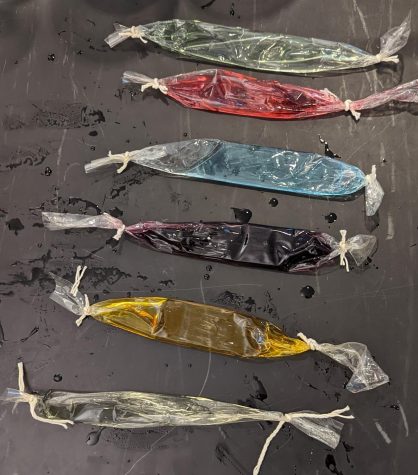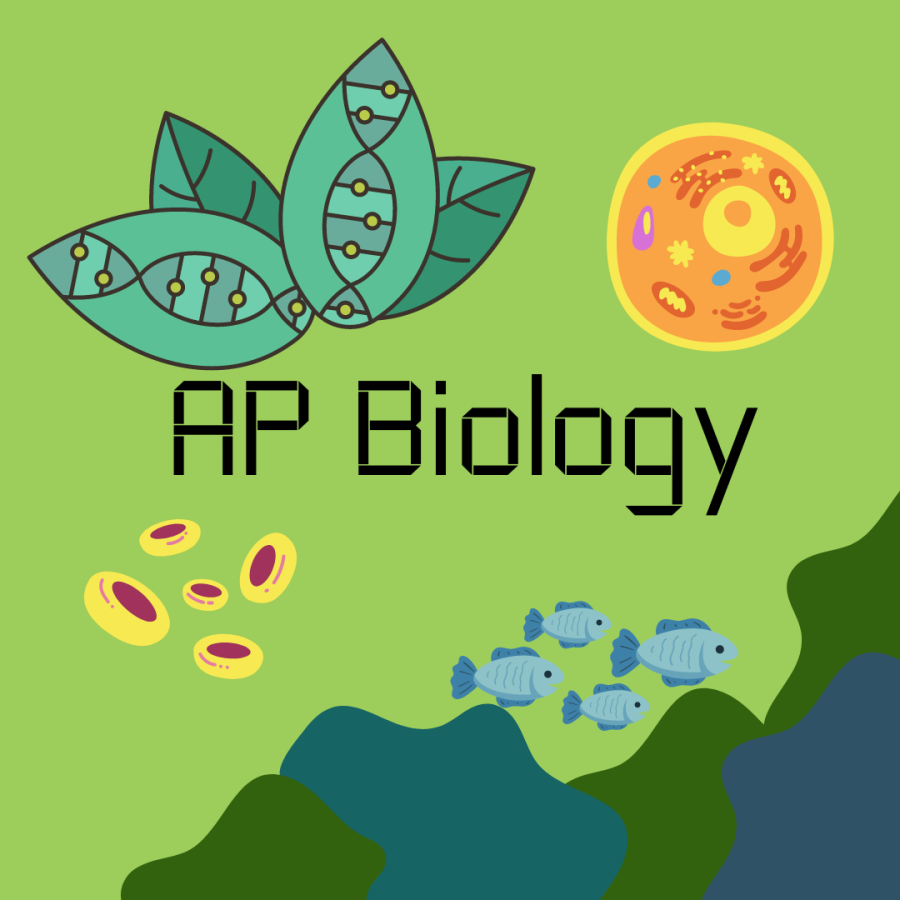AP Biology is a very exciting and rewarding class!
Students adapt to AP Biology!
AP Biology is taught by Mr. Schuster. As an expansion on General Chemistry and Biology, which are both prerequisites to the course, you learn about everything from cellular respiration to evolution to cell communication.
Hannah Wilken, a Senior, says that even though she took Chemistry, “a higher level of Chemistry is really helpful in classes such as AP Biology.” Henri Villeneuve, a Senior, agrees. “While normal Chem wasn’t very helpful, AP Chem has helped me greatly in AP Bio.”
The class is composed of juniors and seniors – for some students, it’s their first AP class.
Jasmine Brown, a Junior, says “the things we learn are interesting to me, but the workload can be super overwhelming at times.” Hannah Wilken agrees: “The homework load is a lot and can seem overbearing so you have to stay caught up. Falling behind can mean you have to work even harder.”

Students spend between thirty minutes to two hours on AP Biology homework nightly, and it consists of chapter readings, lab-prework, and other worksheets to strengthen understanding of topics. “I use almost any extra time I can get outside of school to work on AP Bio work,” says Jasmine. “It’s difficult if you play a sport or work or have other difficult classes. ”
Jasmine adds, “classes are usually a hit or miss, depending on what we do.” Most days consist of fun labs, lectures, or a combination. Either way, the content is packed in “bell to bell,” as Mr. Schuster often likes to say. Henri notes that the large workload AP Biology students have in class “is justified given how much we have to learn.”
Compared to other classes, Hannah says “everyone in the class wants to work hard and everyone wants to learn.” Students have various reasons for their deep interests in learning biology. Jasmine is interested in learning “the function of the body and knowing how everything around [her] works.”
“I love learning how intricately connected and how complicated we all are,” says Henri.
A unique activity that the AP Biology class does: Mr. Schuster lights a candle on students’ birthdays. He sets a wax candle on the student’s desk, heating its bottom slightly so it sticks to the table. The whole class sings “Happy Birthday” in an upbeat tone (upbeat, since it’s not a dirge). It’s an exciting experience.
Compared to other classes, everyone has learned a lot in the past two months. “It feels like more than other classes because of the complexity and theories and the many different topics,” says Jasmine.
Hannah says, “The course is interesting and I can find the emergence of key ideas in some aspects of my everyday life.”
